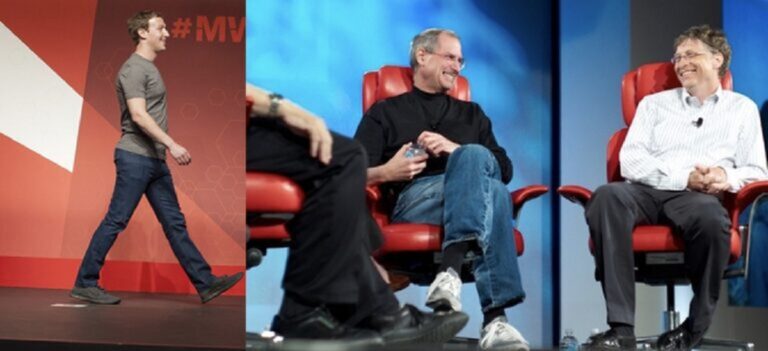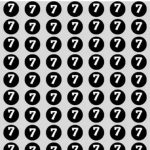ver notice how some of the most brilliant minds in history seemed to wear the same thing every day? Steve Jobs’ signature black turtleneck, Mark Zuckerberg’s gray hoodie, or Albert Einstein’s simple suits—it might look like a style quirk, but there’s actually a fascinating reason behind these uniform choices. It all comes down to the science of decision-making and how simplifying even small daily choices can help boost productivity.
The Mental Cost of Daily Choices
While picking out your clothes might feel like a small, routine part of your day, it actually eats up more mental energy than you’d think. According to Bob Pozen, a lecturer at MIT and author of Extreme Productivity, we make between 10,000 and 40,000 decisions every day. From trivial choices like what to eat for breakfast to more significant decisions like work or family matters, every choice drains a bit of our mental capacity.
That’s where the concept of “decision fatigue” comes in. By the end of the day, after making hundreds or thousands of decisions, your brain is tired. And when your mental energy is depleted, you’re more likely to make poor choices or feel overwhelmed by even simple tasks.
Decision Fatigue and Why It Matters
Social psychologist Roy F. Baumeister developed the theory of decision fatigue, which explains why making constant decisions throughout the day wears down our mental capacity—just like a muscle getting tired after a workout. A 2016 study published in the Proceedings of the National Academy of Sciences showed that after making decisions for an extended period, people struggled to make wise choices. Brain scans revealed decreased activity in the lateral prefrontal cortex, a part of the brain responsible for decision-making.
When you think about it, this makes total sense. After a long day of meetings, phone calls, and emails, even deciding what to have for dinner can feel like a chore. Now imagine how draining it would be for someone leading a major tech company or working on groundbreaking scientific theories—no wonder these leaders simplified their wardrobe choices.
Genius Icons Who Embraced Uniform Dressing
Steve Jobs famously wore the same black turtleneck, jeans, and sneakers almost every day. In his biography by Walter Isaacson, Jobs explained, “I don’t want to waste energy making decisions about what to wear.” By sticking to the same outfit, he could focus his mental energy on more important things—like running Apple and creating revolutionary products.
Similarly, Albert Einstein was known for his simple gray suits and slip-on shoes, opting for minimalism to keep his mind free for the bigger questions in life, like the theory of relativity. Zuckerberg follows the same approach, regularly seen in his gray t-shirt and jeans, explaining that he wanted to cut down on “frivolous decisions” so he could focus on building Facebook.
Even former President Barack Obama followed this principle, famously sticking to either gray or blue suits. In an interview with Vanity Fair, he said, “I’m trying to pare down decisions. I don’t want to make decisions about what I’m eating or wearing. Because I have too many other decisions to make.”
How Simplifying Choices Can Lead to Greater Focus
What can we take away from this? Simplifying small daily choices, like what to wear, can help conserve mental energy for more important tasks. It’s not just about clothes either—many productivity experts recommend creating routines or automating everyday decisions to avoid decision fatigue.
So, next time you find yourself staring at your closet, feeling overwhelmed by all the options, consider adopting a personal uniform. Whether it’s sticking to a few staple pieces or simplifying other areas of your life, freeing up that mental energy could be the key to having a more focused and productive day.
Who knows? Taking one less decision off your plate might just be the secret to unlocking your own potential for greatness!






